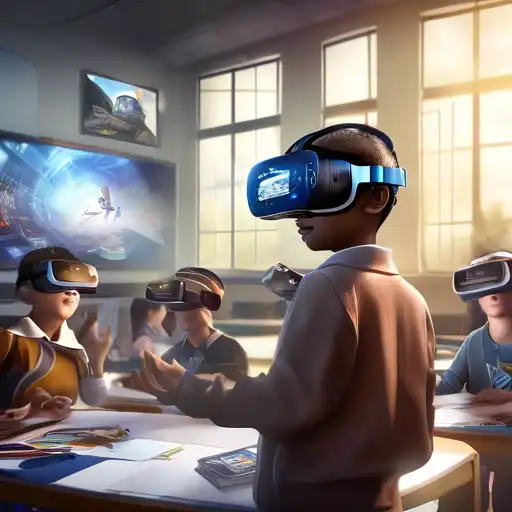Transforming Learning with Virtual Reality: The Future of Education
Virtual Reality (VR) is revolutionizing the educational landscape, offering immersive learning experiences that were once unimaginable. This technology is not just a tool for entertainment but a powerful educational resource that can enhance understanding, retention, and engagement among students of all ages.
The Benefits of VR in Education
VR provides a unique opportunity for students to explore complex subjects in a hands-on manner. From virtual field trips to historical sites to interactive science experiments, the possibilities are endless. Here are some key benefits:
- Enhanced Engagement: VR captivates students' attention like never before, making learning more interactive and fun.
- Improved Retention: Immersive experiences help students remember information longer by engaging multiple senses.
- Accessible Learning: Students from anywhere in the world can access the same high-quality educational experiences, breaking down geographical barriers.
Implementing VR in Classrooms
Integrating VR into education requires careful planning and consideration. Schools and educators must assess their needs, budget, and the technological infrastructure available. Here are some steps to get started:
- Identify the learning objectives that VR can help achieve.
- Choose the right VR content and platforms that align with the curriculum.
- Train teachers and staff on how to effectively use VR technology.
- Evaluate the impact of VR on student learning outcomes.
Challenges and Considerations
While VR offers numerous advantages, there are challenges to its widespread adoption in education. These include the cost of VR equipment, the need for technical support, and ensuring content is pedagogically sound. However, as technology advances and becomes more affordable, these barriers are gradually being overcome.
For more insights on integrating technology in education, explore our guide on educational technology.
The Future of VR in Education
The potential of VR in education is vast and largely untapped. Future developments could include more personalized learning experiences, collaborative virtual classrooms, and even VR-based assessments. As we move forward, it's clear that VR will play a pivotal role in shaping the future of education.
Discover how innovative learning tools are transforming classrooms around the world.
In conclusion, Virtual Reality for education marks the beginning of a new era in learning. By providing immersive, engaging, and accessible educational experiences, VR has the potential to revolutionize how we teach and learn. The journey is just beginning, and the possibilities are limitless.
